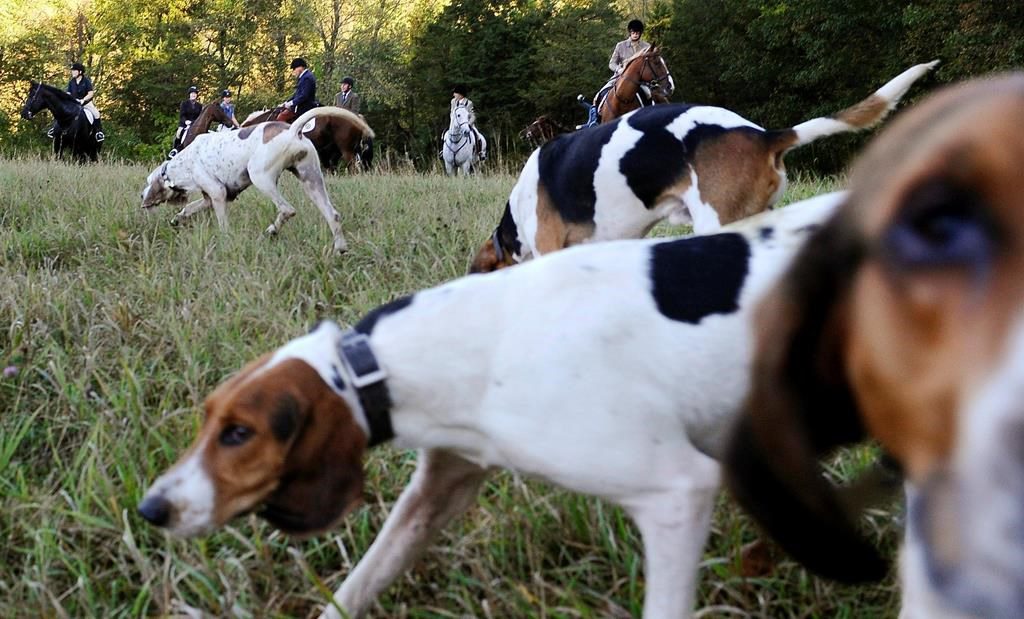Two animal rights groups have asked for a review of a recent Ontario law that expands a system of permits allowing dogs to track captive coyotes, foxes, and rabbits in large fenced-in areas.
Last year, the province passed a law to allow the expansion of permits for areas where hunters can bring their dogs to search for and chase wild animals. The dog sport had declined since the government of former Premier Mike Harris made new permits illegal and allowed others to phase out.
Animal Justice and Coyote Watch Canada filed the review request last week under the province's Environmental Bill of Rights, urging Natural Resources and Forestry Minister Graydon Smith to halt the expansion plans for the hunting dog areas and phase out existing ones.
Camille Labchuk, executive director of Animal Justice, expressed concern about the risks to wildlife and public health posed by these enclosed dog-hunt areas.
In these areas, dogs are set loose to learn to hunt animals, such as coyotes, which are caught in the wild and relocated there.
The competition involves judges scoring the dogs on their hunting abilities, and champions are declared based on points awarded.
While the law states that wildlife should not be harmed during these hunts, former conservation officers have said the reality is different.
Former officers Rick Maw and Wayne Lintack have spoken out against the province's plan to expand the dog sport, citing cruelty towards wildlife, particularly coyotes.
They have reported instances of coyotes being harmed and killed by dogs in the past, as well as the discovery of a coyote trade ring involving illegal capture, confinement, and sale for use in other hunting areas.
Last year, the government of Doug Ford decided to expand the sport after pressure from hunters. The Ontario Sporting Dog Association claims that no animals are harmed in the sport. The expansion also has support from the Ontario Federation of Anglers and Hunters.
The province plans to issue new permits through a one-time 90-day application period, which is expected to open soon, and allow permits to be transferred to new owners.
The animal rights organizations describe the sport as 'cruel and inhumane' in their review application.
In their review application, Animal Justice and Coyote Watch Canada said, 'These operations subject captive animals to horrific physical and psychological distress and create an unsafe environment for the dogs who are trained to chase these animals used as live bait.'
The law requires that animals used as bait in the sport be trapped humanely.
The minister declined to comment, stating that he has not yet had time to review the application.
The ministry stated that it is also examining the application.
“At the moment, all train and trial facilities are operated responsibly and meet strict regulatory requirements, including care standards for wildlife,” stated Marcela Mayo, a spokesperson with the ministry.
“We are dedicated to ensuring this continues.”
Conservation officers check the facilities and will take necessary enforcement action, as they did in the past and will continue to do in the future,” Mayo said.
In 1997, there were over 60 such train and trial areas, but now there are only 24 provincewide. The law made it illegal to sell or transfer those licenses.
No other province permits such train and trial areas using live animals as bait, except for Manitoba, which permits the use of live game birds but no other animals, the review application states.
According to the application, fox and coyote penning is prohibited in most U.S. states.



